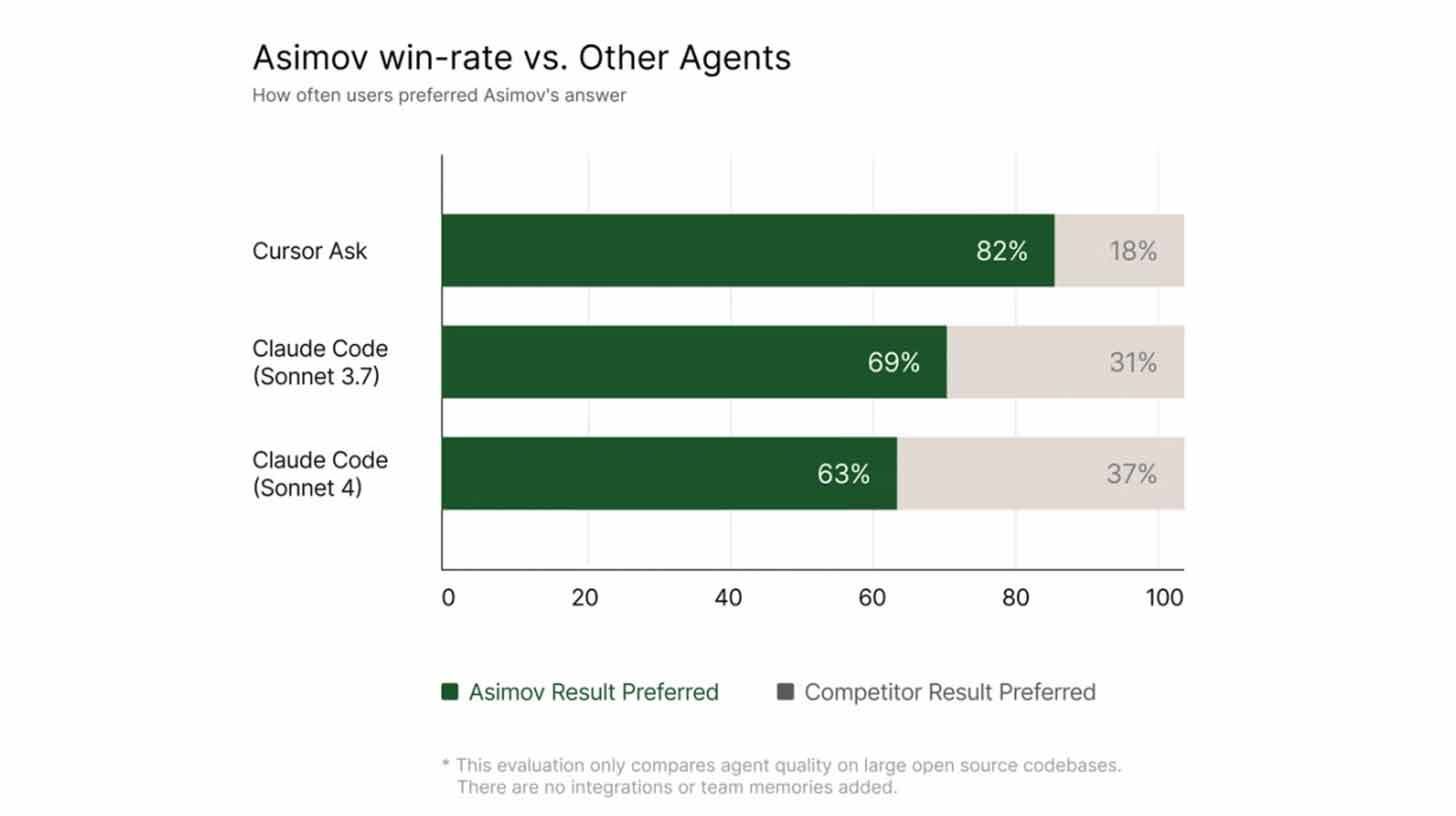Good morning, {{ first_name | AI enthusiasts }}. OpenAI just gave ChatGPT its own computer — and the result is a benchmark-crushing agent that can actually handle real work.
With agent combining a variety of tools to autonomously browse, code, create presentations, and more within its own virtual workspace, the promise of 2025’s agentic revolution may have just taken a massive practical leap forward.
Reminder: Our next workshop is today at 4 PM EST — attend and learn how to use Perplexity Comet (and other alternatives) to automate your browsing experience. RSVP here.
In today’s AI rundown:
OpenAI gives ChatGPT a computer
Reflection AI’s Asimov agent for coding comprehension
Automate your documentation workflow with Gemini CLI
OpenAI beats all but one human in coding competition
4 new AI tools & 4 job opportunities
LATEST DEVELOPMENTS
OPENAI

Image source: OpenAI
The Rundown: OpenAI just rolled out ChatGPT Agent, a major upgrade that allows the AI to control its own virtual computer to tackle complex workflows and agentic tasks, while setting new highs across benchmarks.
The details:
Agent merges tools like Operator and Deep Research into a single system that can autonomously switch between browsing, coding, and document creation.
OpenAI’s livestream showcased capabilities like booking travel, building presentations, shopping, creating a product, and setting up an order.
Agent can also connect to apps like Gmail and GitHub, access APIs, and handle multiple tasks, permissions, and interruptions from the user.
It shows SOTA performance across Humanity’s Last Exam (41.6%), Frontier Math, and a variety of real-world task benchmarks.
OAI classified Agent as “high capability” for biological risks, enacting the strictest safety protocols, including live monitoring and user approvals.
Why it matters: OpenAI is following the path of agents like Manus, giving ChatGPT its own computer to drive a massive boost in agentic capabilities. While Operator was limited in real-world use cases at launch, Agent looks to combine all of AI’s strongest features — giving the first glimpse of where the agentic end game is heading.
See Rowan’s early access testing with ChatGPT Agent here.
TOGETHER WITH CONVEYOR
The Rundown: It's 2025 — security questionnaires should complete themselves, your customers should access your Trust Center instantly, and your content library shouldn't be a maintenance burden. Conveyor’s Customer Trust platform delivers exactly that with 95%+ accuracy.
Automate all your busywork so you can:
Spend 90% less time answering security questionnaires and RFPs, even in tricky portals
Skip knowledge maintenance — your content library stays current on its own
Give your customers instant AI answers in your Trust Center
Fully automate admin and collaboration tasks across teams and tools
REFLECTION AI

Image source: Reflection AI
The Rundown: Reflection AI, founded by ex-Google DeepMind researchers, just launched Asimov — an autonomous agent built to deeply understand codebases, business logic, and team knowledge that claims top performance over SOTA rivals.
The details:
Asimov ingests not just code, but also architecture docs, emails, Slack threads, and project reports to build a persistent knowledge base for engineering teams.
“Asimov Memories” let teams store and update tribal knowledge with natural language prompts, protected by role-based access controls.
Asimov beat Claude Code with 82% developer preference in blind tests, using multiple “retriever” agents that feed findings to a central reasoning system.
Reflection AI was founded by Misha Laskin and Ioannis Antonoglou, who previously worked on Gemini and AlphaGo at Google DeepMind.
Why it matters: Most coding assistants focus on generating code, but Reflection is betting that understanding existing codebases matters more than writing new ones. Asimov’s deeper dive and management of knowledge bases may be the start of AI agents as institutional memory — shifting how software is maintained and evolved.
AI TRAINING

The Rundown: In this tutorial, you will learn how to use Google's new command-line AI tool that automatically generates comprehensive README files and project documentation by analyzing your entire codebase for free.
Step-by-step:
Install it by typing npm install -g @google/gemini-cli in your terminal
Go to your desired folder via shell commands (“cd [path]”) and invoke the agent by typing gemini
Generate your README by asking: “Create a comprehensive README.md with installation, usage, and examples.”
Refine the documentation: “Add contributing guidelines and update the API documentation section.”
Pro tip: We just did a full workshop where you can see how to install, use, and automate workflows with Gemini CLI here.
PRESENTED BY INNOVATING WITH AI
The Rundown: Innovating with AI has trained 1,000+ AI consultants, and now they’re launching their new directory of IWAI Certified AI experts – with exclusive early access for readers of The Rundown.
With this free directory, you can:
Connect instantly with dozens of professional AI experts
Get help with AI training, strategy, and implementation of workflows and agents
Implement modern AI solutions with no fees, commission, or lock-in
AI & CODING

Image source: Psyho (@FakePsyho on X)
The Rundown: OpenAI’s autonomous coding agent just placed second at the AtCoder World Tour Finals in Tokyo, with Polish (human) coder Psyho named the champion after a 10-hour showdown.
The details:
Contestants faced complex optimization puzzles requiring them to guide digital robots through mazes while minimizing moves.
Psyho clinched victory with a 9.5% margin after surviving on just 10 hours of sleep over three days, later posting "Humanity has prevailed (for now!).”
The event marked the first time an AI model competed fully autonomously without human help against elite coders in a live programming final.
Sakana AI tested their ALE-Agent alongside the official competition, achieving results that would have placed fifth overall.
Why it matters: OpenAI CEO Sam Altman previously said the company believed its models would be the best competitive programmers in the world by the end of the year, and this result looks to have them right on track. While Psyho took the crown, this is likely humanity's last gold medal in competitive programming over AI.
QUICK HITS
🤖 ChatGPT Agent - Let ChatGPT handle agentic tasks with its own computer
🎥 LTXV - Lighttrick's open-source video model with 60-second outputs
🖥️ Vision Desktop Share - Let Copilot view & analyze your screen in real-time
⚙️ Bedrock AgentCore - AWS’ suite of tools for deploying enterprise AI agents
Lovable founder Anton Osika announced a new $200M funding round that values the Swedish AI app-building startup at $1.8B.
Mistral rolled out major updates to its Le Chat platform, including Deep Research, Voice Mode, multilingual reasoning, Projects, and new image editing capabilities.
Hume AI released its EVI 3 speech-to-speech model via API, with the ability to clone voices and capture precise speaking styles for more emotion and personality.
Nvidia introduced Canary-Qwen-2.5B, a new SOTA speech recognition model that moved to the top spot on Hugging Face’s Open ASR leaderboard.
Suno released v4.5+, a new audio generation model with new song creation features including vocal swaps, playlist inspiration, and more.
Udio launched updates to its Styles feature for song generation, with new Blending, Library, and Artist Styles coming alongside expanded access for all users.
COMMUNITY
Join our next workshop today at 4 PM EST with Dr. Alvaro Cintas, The Rundown’s AI professor. By the end of the workshop, you'll be able to use Perplexity Comet (and other alternatives) to automate your browsing experience.
RSVP here. Not a member? Join The Rundown University on a 14-day free trial.
That's it for today!
See you soon,
Rowan, Joey, Zach, Alvaro, and Jason—The Rundown’s editorial team






